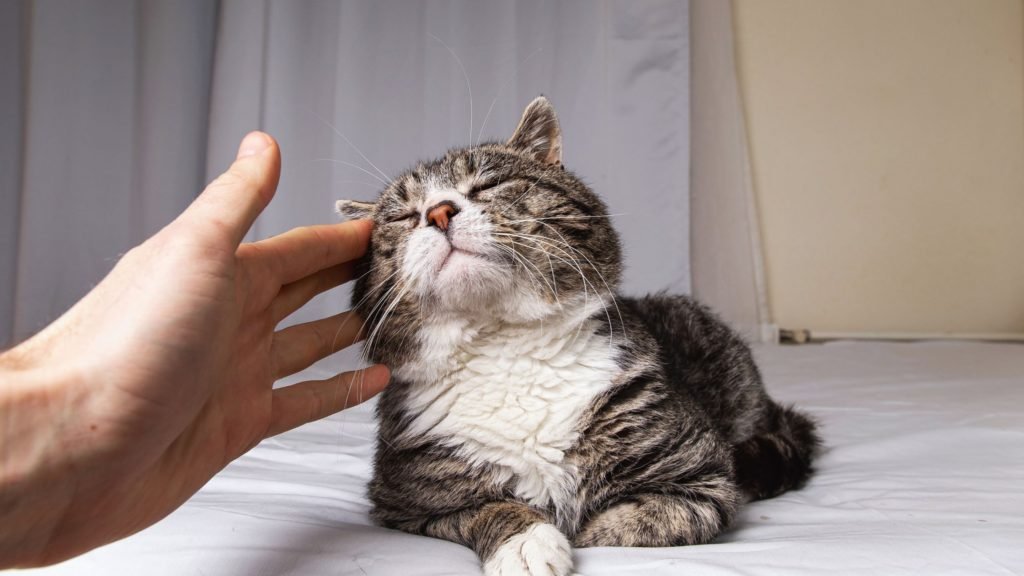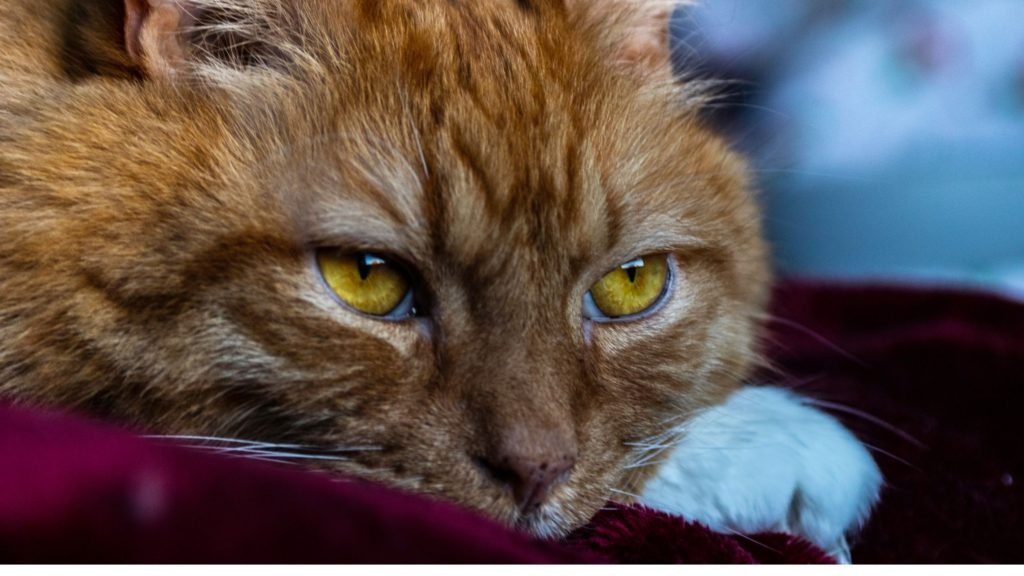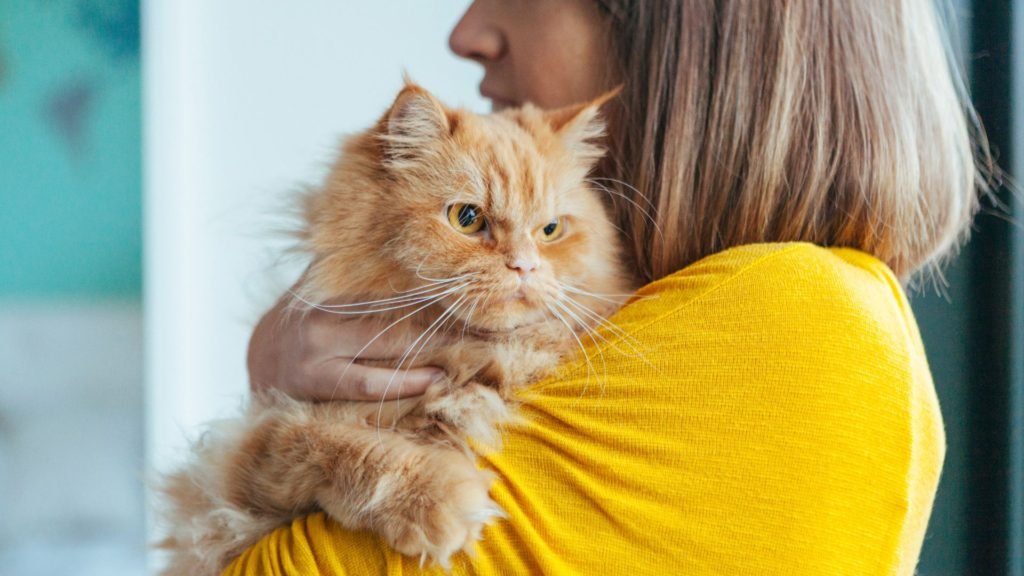Learn essential adopting an older cat tips, including how to choose the right senior feline, prepare your home, and foster a strong bond.
You’ve decided to open your heart and home to an older cat, but where do you start?
How can you ensure a successful adoption and a smooth transition for your new feline friend? In this comprehensive guide, we’ll cover everything you need to know about adopting an older cat, from spotting red flags to asking the right questions at the shelter. So, let’s dive in and discover the secrets to a happy and fulfilling life with your new senior cat companion!
Why Adopt an Older Cat?
The benefits of adopting a senior cat
Before we delve into our essential adopting older cat tips, let’s explore the benefits of adopting a senior cat. People often overlook older cats in favor of younger, more playful kittens, making it difficult for them to find homes.
However, there are several advantages to choosing an older cat:
- Predictable personality: Older cats have already developed their characters, so you’ll know what you’re getting in temperament and energy levels.
- Less demanding: Senior cats tend to be more independent and less demanding than younger cats, making them ideal companions for busy households or first-time cat owners.
- Already trained: Most older cats are already litter trained and have mastered the basics of living in a home, which means less work for you.
- Save a life: Adopting an older cat gives them a second chance at a happy life and positively impacts the overpopulation issue in shelters.

Preparing for Your Older Cat
Assessing your home environment
Before bringing an older cat into your home, take the time to assess your living space and make any necessary adjustments to ensure a safe, comfortable environment for your new pet.
Creating a cat-friendly space
Designate a quiet, cozy area of your home where your cat can retreat and relax. Provide essentials such as a litter box, food and water dishes, toys, scratching posts, and a comfortable bed. Ensure the area is easily accessible for an older cat with mobility issues.
You May Also Interest: The Ultimate Guide to Cage Training a Cat: Tips and Techniques
Cat-proofing your home
It’s essential to cat-proof your home. Remove toxic plants, secure loose wires, and place breakable items out of reach. Additionally, create safe spaces for your cat to retreat if they feel overwhelmed or stressed.
Finding the Right Cat for Your Family
Researching shelters and rescues
Start your search for an older cat by researching local shelters and rescue organizations. Look for organizations that prioritize the well-being of their animals and have a good reputation in the community.
Visiting potential adoptees
Once you’ve identified some potential adoptees, arrange visits with each cat. That will allow you to interact with the cats, observe their personalities, and gauge their compatibility with your family and lifestyle.
What to Ask When Adopting a Cat from a Shelter
When adopting an older cat, gathering as much information as possible about its background, health, and needs is crucial. Here are some key questions to ask shelter staff:
- What is the cat’s history, and why are they in the shelter?
- Does the cat have any known medical issues or special needs?
- What is the cat’s temperament, and how do they interact with other animals or children?
- Is the cat up-to-date on vaccinations and preventative treatments?
- What type of diet and exercise routine does the cat require?
- Can you provide information on the cat’s previous living situation or habits?

Red Flags When Adopting a Cat
While most shelters and rescues prioritize the best interests of their animals, it’s essential to be aware of potential red flags that may indicate a less-than-ideal adoption situation. Here are some warning signs to watch out for:
- Lack of transparency: If the shelter is unwilling to provide detailed information about a cat’s history, medical issues, or temperament, proceed cautiously. A reputable organization should be transparent and open about the animals in their care.
- Unsanitary conditions: Pay close attention to the cleanliness of the shelter or rescue facility. A dirty or overcrowded environment may indicate poor care and contribute to cat health issues.
- Pressure to adopt: If you feel pressured to adopt a cat without having the opportunity to ask questions or spend time with the animal, it’s a red flag. A responsible shelter should prioritize the best interests of the cats and their potential adopters.
What to Avoid When Adopting a Cat
When adopting an older cat, there are some common pitfalls to avoid to ensure a successful adoption experience:
- Impulsive decisions: Adopting a cat is a long-term commitment requiring careful consideration. Avoid making hasty decisions based on appearances alone, and take the time to get to know the cat and its needs.
- Inadequate preparation: Before bringing an older cat into your home, ensure you’re fully prepared for the responsibilities and challenges of pet ownership. Research your chosen breed, make any necessary adjustments to your living space, and have a plan for your cat’s ongoing care.
- Ignoring red flags: If you notice any red flags during adoption, trust your instincts and proceed cautiously. It’s essential to prioritize the cat’s well-being and ensure that you’re adopting from a responsible, reputable organization.
You May Also Interest: Stop the Scratch: Mastering How to Train Your Cat Not to Scratch
Integrating Your New Cat into Your Home

Adopting an older cat requires patience and understanding as they adjust to its new environment. Here are some tips to help your cat settle into their new home:
Give them space
When you first bring your cat home, give them time and space to explore their new surroundings at their own pace. Be patient and allow them to become comfortable with their new environment before interacting with them.
Establish a routine
A consistent daily routine can help your cat feel more secure in their new home. Establish set times for feeding, play, and grooming to help your cat adapt to their new schedule.
Provide mental and physical stimulation.
Although older cats may be less energetic than their younger counterparts, they still need mental and physical stimulation to stay healthy and happy. Provide a variety of toys, scratching posts, and interactive play opportunities to keep your cat engaged and active.
Monitor their health
It’s essential to closely monitor your cat’s health, particularly during the first few weeks of its adoption. Watch for any signs of illness or distress, and consult with your veterinarian if you have concerns about your cat’s well-being.
Building a Relationship with Your Older Cat
Developing a strong bond with your older cat may take time, but it’s well worth the effort. Here are some tips for building a trusting relationship with your new feline friend:
Be patient
Building trust with an older cat can take time, particularly if they have experienced trauma or neglect. Be patient and allow your cat to adjust to their new environment and build trust at their own pace.
Communicate with your cat.
Cats rely on body language and vocal cues to communicate with their humans. Pay attention to your cat’s signals and respond appropriately to help build a strong, trusting relationship.
Reward good behavior
Positive reinforcement can be a powerful tool in building trust with your cat. Reward good behavior with treats, praise, and affection to reinforce the bond between you and your cat.
Caring for an Older Cat's Unique Needs
As your cat ages, you need to change its needs and prepare to care for it as it enters its golden years. Here are some tips for addressing the unique needs of older cats:
Adopting an Older Cat Tips: Regular veterinary check-ups
Senior cats should visit the veterinarian at least once a year for a comprehensive wellness exam. Regular check-ups can help identify and address potential health issues before they become more serious.
Adopting an Older Cat Tips: Adjusting their diet
Older cats may require a specialized diet to meet their changing nutritional needs. Consult with your veterinarian to determine the best food options for your senior cat, considering any specific health concerns or dietary requirements.
Adopting an Older Cat Tips: Maintaining their dental health
Dental health is critical for older cats, as dental issues can lead to more severe health problems if left untreated. Schedule regular dental check-ups with your veterinarian, and brush your cat’s teeth at home to help maintain good oral hygiene.
Adopting an Older Cat Tips: Monitoring their weight
Maintaining a healthy weight is vital for older cats, as excess weight can contribute to various health issues. Monitor your cat’s weight regularly and adjust their diet and exercise routine as needed to keep them at a healthy weight.
Adopting an Older Cat Tips: Providing mobility support
Senior cats may experience joint pain and stiffness, making it more challenging for them to move around. Provide supportive bedding, ramps, or steps to help your cat navigate your home more easily and comfortably.
Adopting an Older Cat Tips: Adapting their environment
As your cat ages, you may need to adjust its environment to accommodate it is changing needs. For example, providing additional litter boxes, modifying their sleeping area, or using nightlights to help them navigate at night can significantly improve their comfort and well-being.
You May Also Interest: Proven Techniques for the Best Way to Train Cats
The Emotional Benefits of Adopting an Older Cat
While we’ve already discussed the practical advantages of adopting an older cat, it’s also essential to consider the emotional benefits. Many people find opening their homes to senior cats can be an enriching and fulfilling experience. Here are a few reasons why:
Emotional maturity
Older cats often have a calmer demeanor and are less likely to exhibit destructive behaviors or engage in excessive play. That can make them ideal companions for individuals who prefer a more peaceful and relaxed home environment.
Gratitude and bonding
Senior cats who are adopted show great gratitude. That can lead to a robust and lasting bond between you and your older cat, as they come to see you as their protector and caregiver.
Life lessons
Caring for an older cat can teach valuable life lessons, such as patience, empathy, and the importance of cherishing our time with our loved ones. These experiences can enrich our lives and deepen our understanding of the world.
Tips for a Successful Adoption Experience
It’s vital to approach the adoption process carefully to guarantee the most incredible outcome for you and your older cat.
Here are a few tips to help guide you toward a successful adoption experience:
Take your time
When visiting shelters or rescue organizations, avoid rushing the decision-making process. Spend ample time with each potential adoptee, observing their behaviors and interactions to determine their compatibility with your household and lifestyle.
Be realistic about your expectations.
While adopting an older cat can be a rewarding experience, it’s essential to be realistic about the challenges that may arise. Senior cats may have specific health or behavioral issues that require ongoing care and attention. Be honest about your ability to provide the necessary support and resources.
Seek expert advice
If you need clarification on whether a cat suits your home, consult shelter staff, rescue volunteers, or a trusted veterinarian. They can provide valuable insights and advice to help guide your decision-making process.
The Importance of Post-Adoption Support
After bringing your older cat home, it’s crucial to have a support network in place to help you navigate the challenges and joys of senior cat ownership. Here are a few resources to consider:
Local pet groups and clubs
Connecting with other pet owners in your community can provide valuable insights, advice, and support as you adjust to life with your older cat. Look for local pet groups or clubs to join online or in person.
Veterinary care
Establishing a relationship with a trusted veterinarian is vital for maintaining your older cat’s health and well-being. Regular check-ups, vaccinations, and dental care are essential for responsible pet ownership.
Online forums and communities
The internet is a treasure trove of information and support for pet owners. Seek out online forums and communities dedicated to cat care, where you can ask questions, share experiences, and connect with others who understand the unique challenges and joys of adopting an older cat.
Celebrating the Unique Qualities of Older Cats
As you embark on your journey with your senior feline companion, take the time to celebrate and appreciate their unique qualities. Older cats have a wealth of life experience, wisdom, and personality that can enrich our lives and bring joy to our homes.
So, as you continue to explore the world of adopting an older cat, remember that these unique animals have much to offer. With love, patience, and understanding, you can create a nurturing environment where your older cat can thrive and enjoy their golden years in comfort and happiness.
In Conclusion
Adopting an older cat can be an advantageous experience, offering both you and your new feline companion a chance at a happy, fulfilling life together. By following these adopting older cat tips, you’ll be well-prepared to navigate the adoption process, integrate your new cat into your home, and address its unique needs as they age.
Remember to be patient, compassionate, and attentive to your cat’s needs as they adjust to their new life with you. With time, love, and understanding, you’ll build a strong bond with your older cat that will last for the rest of their life.

